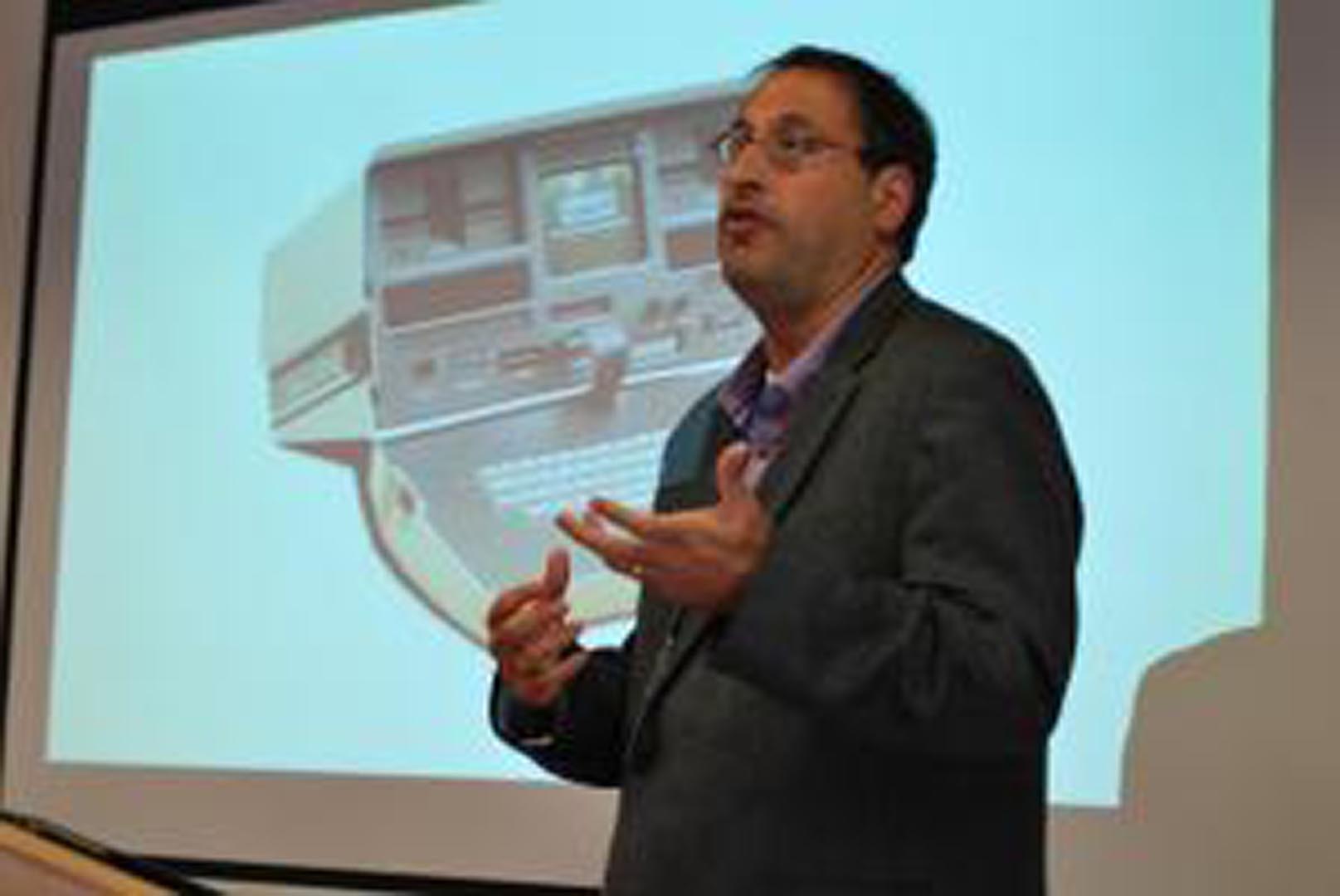Newly-Funded Research At Arhu Examines Role Of Digital Processes In Commercial Publishing And Bookmaking
November 21, 2017

The project will facilitate unique connections between academia and professional book publishers.
Matthew Kirschenbaum, professor of English at the University of Maryland, has received funding from the Andrew W. Mellon Foundation for a new project, “Books.Files,” examining the role of digital tools and processes in commercial book publishing. The project will bring scholars and archivists from academia together with professionals from the publishing world for an unprecedented dialogue on not only the role of the digital in publishing, but the potential for archiving and studying the digital assets associated with contemporary trade publishing and bookmaking.
Kirschenbaum is a specialist in digital culture and textual studies. To write his most recent book, “Track Changes: A Literary History of Word Processing,” he studied novelists’ rough drafts, interviewed early adopters of word processors and collected vintage computers to understand how the computer revolution affected creative authorship.
That project examined authors and their individual encounters with technology. Kirschenbaum said he became curious about the relationship between publishing and technology when the copies of the book finally arrived on his doorstep.
“When I heard the satisfying ‘thud’ of the boxes being delivered, I realized I had no idea what had happened between the time I sent in my final manuscript to the publisher and when it arrived at my house,” Kirschenbaum said.
This curiosity lead to a series of questions: How are contemporary books made? Where are they printed? What kinds of software programs do designers and editors use to actually create books, and how much of that process is outsourced? Kirschenbaum said that scholars know more about the publishing process of a century ago than contemporary practices.
“There’s a lot of talk about the death of the book, but there are more books being printed now than ever before,” Kirschenbaum said. “But before the book becomes a book, it is a digital file--or really, a set of digital files, consisting of everything from the layout and artwork to the text. That’s where the content is most fluid and dynamic.”
As a digital humanist and textual scholar, Kirschenbaum is interested in reconstructing the different versions and states of a text. By studying drafts of manuscripts, printing proofs and correspondence between writers, editors and publishers, for example we can learn more about the personal and cultural factors influencing what ultimately becomes a book. The scholarly community relies on archives to do this kind of research. However, most of the contemporary book publishing process is digital. The kinds of things that were traditionally captured in an archive, like editors marks or correspondence between an author and a publisher, are often now in ephemeral exchanges on email or text messages. Kirschenbaum wants to start a formal dialog with publishers so that together they can develop methods of preserving these short-lived materials and protocols for providing researchers access to them.
The barriers to archiving and accessing digital materials are not only technological, they are also social. Both scholars and professional publishers are beginning to realize that the communications which happen in these more casual, digital forms are culturally valuable.
“We are accustomed to thinking of text messages as being disposable,” Kirschenbaum says. “But what about a text message exchange between Toni Morrison and her publisher?”
The centerpiece of the project will be a convening to bring scholars and publishers together in New York City in early 2018. Kirschenbaum will also do site visits in Manhattan and elsewhere to observe the bookmaking process in different settings, and interviews with industry experts.
“This is a very public project,” he said. “Rather than being alone in an archive, I will be talking to people and literally looking over their shoulders as they work.”
Findings for scholars, archivists, and publishers will be presented in a white paper made publicly available in late 2018.
This project is supported by a grant from the Andrew W. Mellon Foundation. The content of this article does not necessarily reflect the views of the foundation.
This release is based on an interview Matthew Kirschenbaum.

